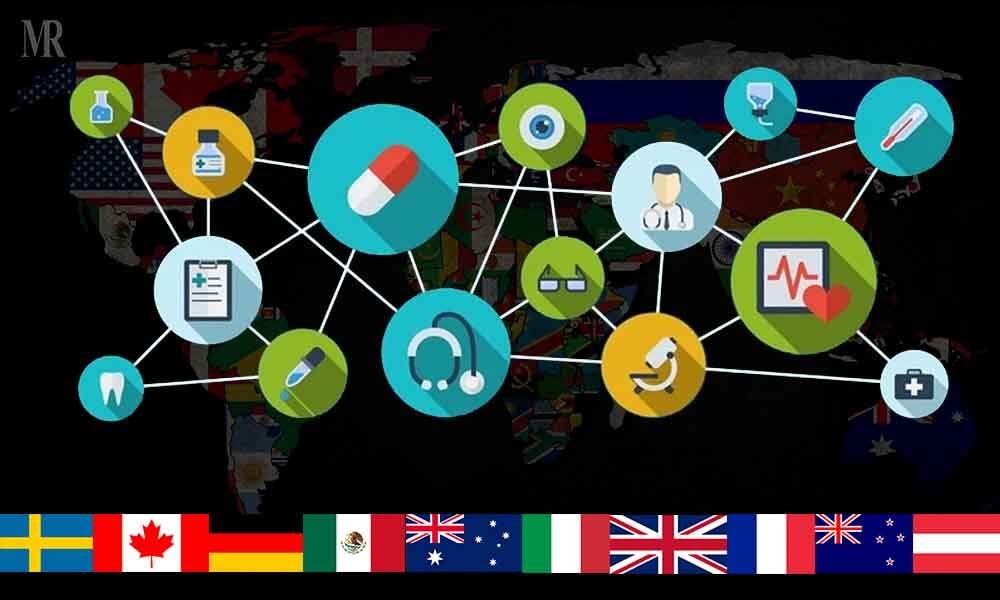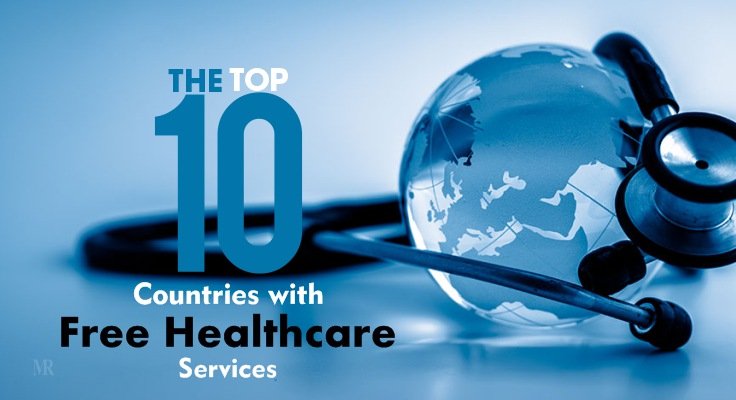Have you ever had a question about what countries have free healthcare? Healthcare is one of the most important aspects of human well-being. However, not everyone has access to quality and affordable healthcare services. In fact, according to the World Health Organization, about half of the world’s population lacks essential health services, and 100 million people are pushed into extreme poverty because of health expenses. That is why some countries have adopted a different approach: providing free or universal healthcare to their citizens. In this blog, we will explore the concept of free or universal healthcare, the benefits and challenges of such systems, and countries with free healthcare in the world that have implemented them successfully.
Why do countries need free healthcare services?
The excellence and productivity of a country’s healthcare system can have a colossal impact on its inhabitants’ quality of life. The health of a nation certainly depends mostly on how the system can cater to its people, which is why a satisfactory public health care system is so necessary. Stronger health is the key to human happiness and well-being. Moreover, it contributes to economic development, as healthy populations live longer, are more productive, and save more. Thus, countries with best free healthcare services are preferred for migration. Many factors influence health status and a country’s capability to administer quality health services to its people. Ministries of health are crucial actors, but so are other government departments, donor organizations, civil society groups, and communities themselves.
They say that the best things in life are free: but is that true for healthcare?
Understanding Free Healthcare vs Universal Healthcare
Both of these terms are usually used interchangeably, but there are differences.
- Universal Healthcare: It signifies that there is a healthcare system that grants coverage to at least 90% of citizens.
- Free Healthcare: Countries with free healthcare ensure that all citizens undergo healthcare at a very minimal or no cost.
The idea of free healthcare is true and there is a list of countries providing the best healthcare facilities including free healthcare, first aid and cpr course, universal healthcare, or even both. However, there is an extent to which people can take advantage of these facilities. Besides, they are several free healthcare countries with different systems, facilities, conditions, and funding systems.
After understanding global healthcare services, you might have a question about which countries have free healthcare
Below is a list of countries with free healthcare services:
- Australia
- Austria
- Bahrain
- Belgium
- Brunei
- Canada
- Cyprus
- Finland
- France
- Germany
- Greece
- Hong Kong
- Iceland
- Ireland
- Israel
- Italy
- Japan
- Kuwait
- Luxembourg
- New Zealand
- Norway
- Portugal
- Singapore
- Slovenia
- South Korea
- Spain
- Sweden
- Switzerland
- United Arab Emirates
- United Kingdom
Now, after going through the long list of countries with free healthcare, you might have a question: which country provides the best free healthcare in the world? Well, you can go through the below-mentioned countries with free healthcare facilities

1. Sweden
Sweden stands atop the list of free healthcare countries. The Swedish health care system is distinguished by high standards of quality care and above-average healthcare spending. About 600,000 Swedes have a private health plan, which is usually covered by their employers and can be useful to skip queues for treatment.
2. Canada
The next to be on the list of free healthcare countries is Canada. Canada’s publicly funded health care system is a body of socialized health insurance plans administering coverage to all Canadian citizens and permanent residents. Canada has a remarkably high life expectancy rate, which many associate with the expertise of its health care system.
3. Mexico
Every Mexican citizen has assured cost access to healthcare and medicine as stated by the Mexican constitution and made it a reality with the “Institute of Health for Well-being”. The Mexican Federal Constitution hands over main responsibility on the state in providing national
4. United Kingdom
Healthcare in the UK has resulted to be reliable and beneficial for citizens and migrant workers. The National Health Service, Scottish and Northern Ireland state programs equip many options for emergency medical treatment.
5. Italy
The healthcare system in Italy is a regionally established national health service recognized as Servizio Sanitario Nazionale (SSN). It grants coverage to all citizens and residents, with public healthcare largely free of charge.
6. Germany
The list of free healthcare countries also includes Germany and its unique healthcare facilities. The healthcare system in Germany is very exceptional but costly. Health insurance is compulsory, and most expatriates have it added to their employment contracts.
7. Australia
Australia’s healthcare system has two main sections: the public health system, and the private health system. A collaboration of private health insurance, Medicare and personal payments covers the medical costs of a patient. This gives Australian residents free treatment in public or private hospitals.
8. France
The list of free healthcare countries includes France that has its state-run and private hospitals and both maintain a similar degree of supremacy. While having private health insurance isn’t necessary, it is advisable to have when you’re living in France.
9. Austria
Austria has a significant standard of healthcare. Paying into the government health insurance scheme is mandatory for both Austrians and non-natives, with admirable medical facilities and services financed by the taxpayer.
10. New Zealand
Lastly, among the other free healthcare countries, New Zealand’s high-quality healthcare system is highly applauded. The healthcare system in New Zealand is state-sponsored and of very superb quality. It is financed through taxes and gives no-cost or subsidized medical treatment for residents.
Answering Frequent-Asked Questions on Universal Healthcare
Starting with Universal healthcare, it indicates only that every individual’s healthcare requirements are taken care of, one way or another. Firstly, Universal healthcare refers to healthcare systems in which all individuals have insurance coverage.
Secondly, the Medicare for All Act provides comprehensive health care to every man, woman, and child in the country without out-of-pocket expenses. It allows all residents, regardless of their income, to get the health care they need when they need it
Thirdly, Single-payer healthcare guarantees healthcare as a human right. Everyone is given all-inclusive healthcare coverage. “Single-payer” refers to substituting the thousands of for-profit health insurance companies with one entity, most likely the government, solely and exclusively responsible for paying for medical goods and services.
People guess that the sum paid in taxes for healthcare will surely be greater than the amount people and their employers pay in healthcare premiums now. It might cost more, but it doesn’t have to. According to the reports and data, every other advanced country has universal healthcare. Besides, countries with free healthcare cost about half of what the non-universal healthcare countries do.
Now, it’s legitimate that if we simply covered everyone’s healthcare providing them the needful healthcare services all the time, without bringing changes in the system now, then yes, it would cost more. Nevertheless, there are many opportunities to drive the costs of healthcare down. If the same universal health plan also took those opportunities, then no, universal healthcare does not have to cost more.
A lot of people in different countries are opposing universal healthcare and just consider the government screws everything up. We may have doubts about our government spending money in other areas, however, when it comes to reducing the administrative costs of health care, government programs are ten times as efficient as private insurance. Moreover, every healthcare system in the world that implements universal care without limiting benefits ultimately provides better care to more people for less money. Although you cannot assume that it will be way less, it definitely is beneficial for everyone.
No. Around the world, we see an ample variety of ways to provide healthcare to people. For example, Canada, Denmark, Norway, and Sweden basically have “single-payer” systems. Their governments pay for care that’s delivered privately. Whereas, Great Britain and Spain have national health services. The government reimburses the doctors and owns the hospitals.
Furthermore, Germany and France have multiple payers. Both the countries have private insurance companies, and public ones for the poor and disabled, that are generally and tightly monitored as well as paid out of various funds. But one way or another everyone is protected.
Today’s market is not free but highly organized. The present market is a restricted market in which the ultimate customer is you which is neither a private system nor a government system. It’s a private system that is bound by the government under all sorts of legal and licensing requirements that have been built up by the healthcare industry itself over the last century.
Certainly, it can. That’s what a universal system is for, to make sure people can get support whether they are in a situation right now to pay into it or not. It spreads the cost across generations, across rich and poor parts of the country. This is what Medicare, Medicaid, Federally Qualified Community Clinics, CHIP funds for children’s healthcare, and other such programs are for, to support people who are not working, retired, or with too a low income to be paying into the system.
This is probably false. There have been multiple studies, looking at the question in various ways. Moreover, even new immigrants are desperate to make a living, and raise business for their families. They want to be taxpayers as early as possible, and most of them accomplish to do that.
No, research and innovation are certainly not what makes healthcare costly. No data supports this impression. Higher costs for patient care need not finance research and innovation. In fact, there are many other ways, such as direct government grants, private funding for startup companies, pharmaceutical companies, and device manufacturers financing their research.
And if you think about it, you’ll see that research and innovation can contribute to reducing the cost of healthcare rather than increasing it. Additionally, functional medicine can cure chronic diseases at a much earlier and more feasible stage. And, as a result, the right kinds of research and innovation can drop costs.
In drawing things to a close, several unforeseen places all over the world usually promote excellent, and affordable health care services. It evidently may be a health care bureau providing free malaria testing and treatment at International border crossings or Public health campaigns providing free influenza or tetanus vaccines.
University-based student health clinics may also offer free sexual health services to anyone who requests them. However, you never know when you might stumble across an opportunity to enhance your health at no extra cost!
BuyDoctorList offers top-quality Email Lists in the USA. We provide accurate and up-to-date healthcare email lists to help businesses reach medical professionals and institutions effectively. Our comprehensive database covers doctors, hospitals, clinics, and more. With BuyDoctorList, you can streamline your marketing efforts, promote healthcare products or services, and build valuable connections within the medical field. Our commitment to quality and accuracy ensures you get the best results from your healthcare marketing campaigns. Choose BuyDoctorList for your email list needs and take a step closer to connecting with healthcare professionals and institutions across the USA.
Also Read:












